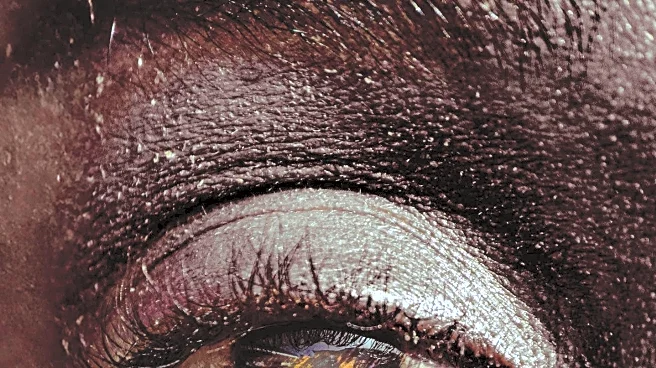What's Happening?
Plastic surgeons have raised concerns about a new cosmetic procedure known as 'hunter eye' surgery, which is gaining popularity among men seeking to alter the appearance of their eyes. The surgery involves reducing the volume of the eyeballs and changing the slant of the eyes to achieve a more predatory look. This procedure is considered highly risky due to its invasive nature, which includes slicing through the conjunctiva and outer corner of the eye, and removing part of the eye socket. Despite some individuals achieving satisfactory results, the surgery has led to questionable outcomes for others, highlighting the potential dangers involved.
Why It's Important?
The rise in popularity of 'hunter eye' surgery underscores a growing trend in extreme cosmetic procedures driven by societal pressures and beauty standards. This development raises significant concerns about the safety and ethics of such surgeries, as they can lead to severe complications and irreversible damage. The procedure's risks highlight the need for increased awareness and regulation in the cosmetic surgery industry to protect individuals from potentially harmful practices. As more people seek drastic changes to their appearance, the medical community may face challenges in addressing the psychological and physical impacts of these procedures.
What's Next?
As awareness of the risks associated with 'hunter eye' surgery grows, it is likely that medical professionals and regulatory bodies will push for stricter guidelines and oversight in the cosmetic surgery field. This could lead to increased scrutiny of new and emerging procedures, ensuring they meet safety standards before being offered to the public. Additionally, there may be a call for more comprehensive education for potential patients about the risks involved in such surgeries, encouraging informed decision-making and prioritizing health over aesthetic desires.
Beyond the Headlines
The trend towards extreme cosmetic procedures like 'hunter eye' surgery reflects broader societal issues related to body image and self-esteem. It raises ethical questions about the role of medical professionals in facilitating potentially harmful surgeries and the responsibility of society to promote healthy and realistic beauty standards. This development may also spark discussions about the psychological factors driving individuals to undergo such drastic changes, highlighting the need for mental health support alongside cosmetic interventions.








